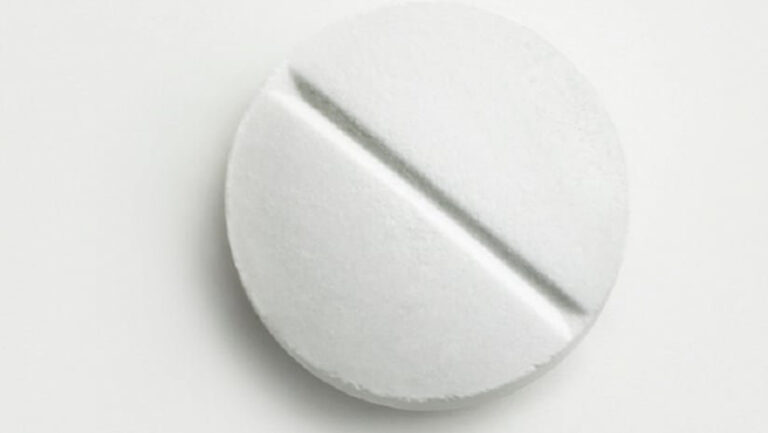Does Modafinil Make You Angry? Exploring the Emotional Side Effects
Modafinil has long been hailed as a cognitive enhancer—used by professionals, students, and even military personnel to improve focus and wakefulness. But as its popularity grows, so do concerns around its psychological and emotional impact. One of the most frequently asked questions is: Can Modafinil make you angry or emotionally unstable?
What Is Modafinil and How Does It Work?
Modafinil is a wakefulness-promoting agent approved by the FDA for the treatment of narcolepsy, shift work sleep disorder, and obstructive sleep apnea. Unlike traditional stimulants such as amphetamines, Modafinil has a unique mechanism that is still not fully understood but appears to involve modulation of dopamine, norepinephrine, glutamate, and orexin systems (FDA, 2007).
It does not bind strongly to dopamine receptors but inhibits dopamine reuptake, leading to increased dopamine availability in key brain regions (FDA, 2007). It also affects glutamatergic and GABAergic transmission, which may explain its influence on cognition and emotional regulation (Scoriels et al., 2013).
Can Modafinil Affect Your Mood?
While Modafinil does not act directly as an antidepressant or anxiolytic, several studies have shown that it can subtly influence emotional states and mood processing—both positively and negatively.
Emotional Processing in Clinical Populations
A study on patients with first-episode psychosis found that a single 200 mg dose of Modafinil significantly improved recognition of sad facial expressions, a key component of emotional intelligence. However, it did not affect subjective mood ratings (Scoriels et al., 2011). This suggests Modafinil may enhance emotional cognition without necessarily inducing a mood shift.
Further, a systematic review of Modafinil’s effects in schizophrenia revealed enhanced emotional and cognitive processing likely due to dopaminergic and glutamatergic activation in the prefrontal cortex and hippocampus (Scoriels et al., 2013).
Effects in Healthy Individuals
In healthy participants, fMRI studies demonstrated that Modafinil reduced amygdala activity—a brain region central to processing fear and threat—while simultaneously improving cognitive efficiency in the prefrontal cortex (Rasetti et al., 2010). This could explain why some users report feeling calmer or more emotionally “flattened” under its influence.
Reports of Irritability and Anger
Although Modafinil does not typically induce emotional volatility, some users may experience irritability, especially at lower doses. A clinical study on healthy volunteers found that those who took 100 mg of Modafinil reported higher levels of somatic anxiety, restlessness, and irritability compared to placebo and the 200 mg group (Randall et al., 2003).
This paradoxical finding may suggest that sub-therapeutic doses could have stimulating effects that unbalance emotional regulation in certain individuals. However, larger doses (e.g., 200 mg) did not produce the same level of emotional agitation.
What About Long-Term Use?
While the long-term emotional effects of Modafinil remain under-researched, current studies generally involve single or short-term dosing. The few chronic-dosing studies available focus primarily on cognitive performance, not emotional well-being (Scoriels et al., 2013).
There is currently no evidence suggesting that Modafinil induces persistent anger or emotional instability in the general population, though individual variation—including genetic factors, baseline mood, and neurochemistry—likely plays a significant role in how one reacts to the drug.
Balancing the Benefits and Risks
✔️ Potential Emotional Benefits
- Enhanced recognition of emotional expressions (Scoriels et al., 2011)
- Improved emotional resilience in sleep-deprived states (Scoriels et al., 2013)
- Reduced amygdala reactivity to fear stimuli (Rasetti et al., 2010)
⚠️ Potential Emotional Downsides
- Irritability and somatic anxiety at lower doses (Randall et al., 2003)
- Subtle mood flattening or reduced emotional reactivity (anecdotal and supported by neuroimaging)
Key Takeaways
- Modafinil does not inherently make you angry, but it may lead to irritability or anxiety in sensitive individuals or at low doses.
- It may actually enhance emotional recognition and reduce fear response by modulating amygdala activity.
- Emotional side effects are dose-dependent and vary individually.
- More research is needed on long-term emotional effects, especially in non-clinical users.
Final Thoughts: Should You Be Concerned?
For most people, Modafinil is emotionally neutral or mildly positive. But like any psychotropic agent, individual responses vary. If you’re considering using Modafinil, monitor your emotional state closely—especially during the first few doses—and consider starting at a clinically supported dose of 200 mg, not lower.
If you’re prone to anxiety or emotional reactivity, consult a healthcare professional before using Modafinil. The emotional and cognitive effects of this unique substance are still being understood, but existing research provides strong evidence that it does not generally induce anger and may actually enhance emotional processing in some cases.
References
- U.S. Food and Drug Administration. (2007). PROVIGIL® (modafinil) tablets [prescribing information]. U.S. Department of Health and Human Services. Retrieved from https://www.accessdata.fda.gov/drugsatfda_docs/label/2007/020717s020s013s018lbl.pdf
- Ranjan, S., & Chandra, P. S. (2005). Modafinil-induced irritability and aggression? A report of 2 bipolar patients. Journal of Clinical Psychopharmacology, 25(6), 628–629. https://doi.org/10.1097/01.jcp.0000185346.77966.a4
- Rasetti, R., Mattay, V. S., Stankevich, B., Skjei, K., Blasi, G., Sambataro, F., Arrillaga-Romany, I. C., Goldberg, T. E., Callicott, J. H., Apud, J. A., & Weinberger, D. R. (2010). Modulatory effects of modafinil on neural circuits regulating emotion and cognition. Neuropsychopharmacology, 35(10), 2101–2109. https://doi.org/10.1038/npp.2010.83
- Randall, D. C., Shneerson, J. M., Plaha, K. K., & File, S. E. (2003). Modafinil affects mood, but not cognitive function, in healthy young volunteers. Human Psychopharmacology: Clinical and Experimental, 18(3), 163–173. https://doi.org/10.1002/hup.456
- Scoriels, L., Jones, P. B., & Sahakian, B. J. (2013). Modafinil effects on cognition and emotion in schizophrenia and its neurochemical modulation in the brain. Neuropharmacology, 64, 168–184. https://doi.org/10.1016/j.neuropharm.2012.07.011
- Scoriels, L., Barnett, J. H., Murray, G. K., Cherukuru, S., Fielding, M., Cheng, F., Lennox, B. R., Sahakian, B. J., & Jones, P. B. (2011). Effects of modafinil on emotional processing in first episode psychosis. Biological Psychiatry, 69(5), 457–464. https://doi.org/10.1016/j.biopsych.2010.09.043








